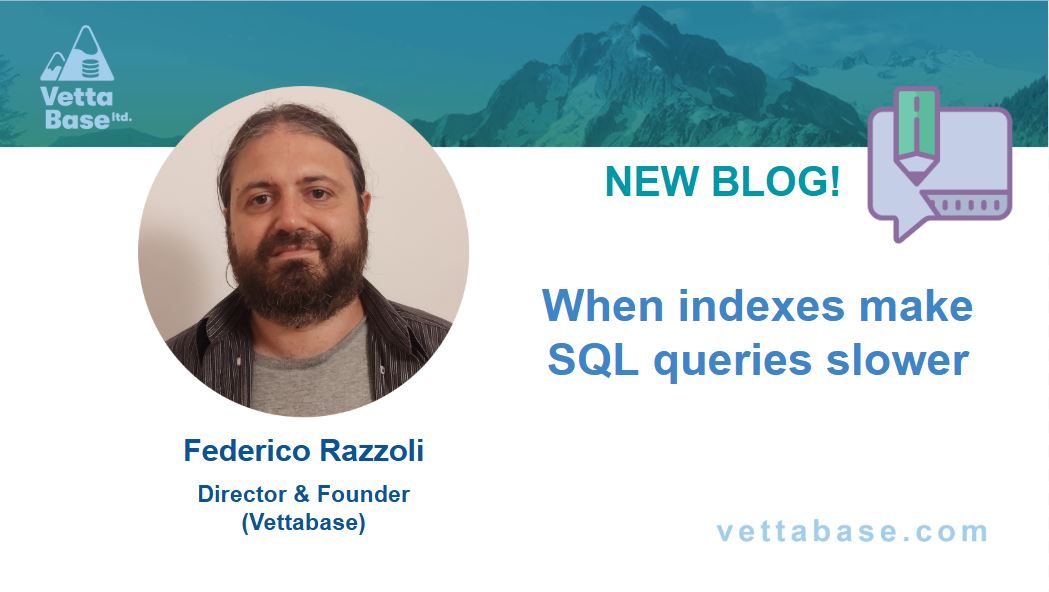The MySQL Team has released MySQL 8.0.33 very recently on April 18, 2023. This release contains a number of bug fixes along with some interesting improvements. In this blog post, I’ll cover the most important changes in MySQL 8.0.33.
Variables can be set while installing the components
Starting from MySQL 8.0.33, it is allowed to SET the system variables while installing components. It has become possible to use both GLOBAL|PERSIST options. Previously, we had to install the components prior to setting the configurations manually:
Before MySQL 8.0.33
mysql> INSTALL COMPONENT 'file://component_validate_password' -> SET GLOBAL validate_password.policy=2, -> PERSIST validate_password.length=25; ERROR 1064 (42000): You have an error in your SQL syntax; check the manual that corresponds to your MySQL server version for the right syntax to use near 'SET GLOBAL validate_password.policy=2, PERSIST validate_password.length=25' at line 2
From MySQL 8.0.33:
mysql> INSTALL COMPONENT 'file://component_validate_password'
-> SET GLOBAL validate_password.policy=2,
-> PERSIST validate_password.length=25;
Query OK, 0 rows affected (0.02 sec)
mysql> select @@validate_password.length, @@validate_password.policy; +----------------------------+----------------------------+ | @@validate_password.length | @@validate_password.policy | +----------------------------+----------------------------+ | 25 | STRONG | +----------------------------+----------------------------+ 1 row in set (0.00 sec)
Changes in old replication terminology
The MySQL product terms “master to source”, “slave to replica” ,”MTS to MTA” are replaced in error messages. Currently, all the error messages are listed in the following files. These files can be found under the base directory.
- messages_to_clients.txt
- messages_to_error_log.txt
root@vm-mysql:/usr/share/mysql-8.0# pwd
/usr/share/mysql-8.0
root@vm-mysql:/usr/share/mysql-8.0# ls -lrth | grep -i message
-rw-r--r-- 1 root root 384K Mar 16 17:22 messages_to_error_log.txt
-rw-r--r-- 1 root root 615K Mar 16 17:22 messages_to_clients.txt
oot@vm-mysql:/usr/share/mysql-8.0# less messages_to_error_log.txt | grep MTA | head -n1
ER_RPL_MTA_RECOVERY_STARTING_COORDINATOR
root@vm-mysql:/usr/share/mysql-8.0# less messages_to_error_log.txt | grep SOURCE | head -n1
ER_RPL_BINLOG_SOURCE_SENDS_HEARTBEAT
root@vm-mysql:/usr/share/mysql-8.0# less messages_to_error_log.txt | grep REPLICA | head -n1
ER_SHUTTING_DOWN_REPLICA_THREADS
The present task does not perform this replacement for messages used in other contexts.
Performance_schema server telemetry trace service
The Performance_schema server telemetry trace service has been introduced in MySQL 8.0.33. With this interface, plugins and components can retrieve notifications related to SQL statements’ lifetime. Currently, the related information is available in the MySQL source code documentation.
The following two new changes have recently been added:
- New “telemetry_traces_supported” parameter
- New “telemetry_active” column in the performance_schema.threads table
mysql> show global status like '%tele%'; +----------------------------+-------+ | Variable_name | Value | +----------------------------+-------+ | Telemetry_traces_supported | ON | +----------------------------+-------+ 1 row in set (0.00 sec)
mysql> select table_schema, table_name, column_name from information_schema.columns where table_name='threads' and column_name like 'tele%' ; +--------------------+------------+------------------+ | TABLE_SCHEMA. | TABLE_NAME | COLUMN_NAME | +--------------------+------------+------------------+ | performance_schema | threads | TELEMETRY_ACTIVE | +--------------------+------------+------------------+ 1 row in set (0.00 sec)
User-defined COLLATIONS will create warnings
User-defined collations are now deprecated from MySQL 8.0.33.
- COLLATE followed by the name of a user-defined collation in a SQL statement
- Use of the name of a user-defined collation as the value of collation_server, collation_database, or collation_connection
Example
I have created a new collation “latin1_sri_ci” and tried to use it in this SQL statement. It gives the warning as below as,
mysql> SHOW COLLATION WHERE Collation = 'latin1_sri_ci'; +---------------+---------+------+---------+----------+---------+---------------+ | Collation. | Charset | Id | Default | Compiled | Sortlen | Pad_attribute | +---------------+---------+------+---------+----------+---------+---------------+ | latin1_sri_ci | latin1 | 1024 | | | 0 | PAD SPACE | +---------------+---------+------+---------+----------+---------+---------------+ 1 row in set (0.00 sec)
mysql> CREATE DATABASE herc CHARACTER SET latin1 COLLATE latin1_sri_ci;
Query OK, 1 row affected, 1 warning (0.01 sec)
mysql> show warnings\G * 1. row * Level: Warning Code: 4162 Message: 'latin1_sri_ci' is a user defined collation. User defined collations are deprecated and will be removed in a future release. Consider using a compiled collation instead. 1 row in set (0.00 sec)
Other Important features
- mysqlbinlog option –start-position now accepts values up to 18446744073709551615, unless the –read-from-remote-server or –read-from-remote-source option is also used, in which case the maximum is 4294967295. Previously it was limited to 4GB. If the binary log size exceeds 4GB ( due to bulk transaction ), “–start-position” will not accept any value higher than 4G. See more details in this bug report.
- Binary packages that include curl rather than linking to the system curl library have been upgraded to use curl 7.88.1.
Note. It looks like there is a confusion about “InnoDB: Parallel Index Build” In MySQL 8.0.33 release notes. I have verified it in the MySQL community Slack channel. It was mentioned mistakenly in MySQL 8.0.33 release notes, and later it was removed. So, there is NO change with “InnoDB: Parallel index build” in MySQL 8.0.33.
Conclusion
Like previous releases, MySQL 8.0.33 came up with a lot of bug fixes and significant changes. Consider upgrading to MySQL 8.0.33 with proper testing. At Vettabase, we provide help for nearly all tasks related to MySQL administration (contact us via sales@vettabase.com if you need assistance).
Join our next webinar on MySQL 8.0 asynchronous replication improvements at 4 PM BST on May 30, registration is now open!






0 Comments